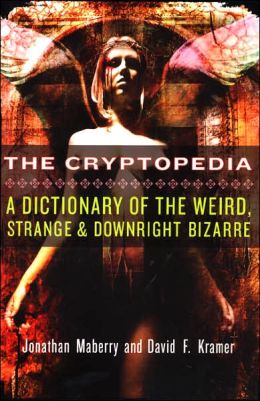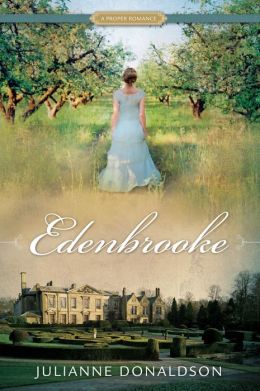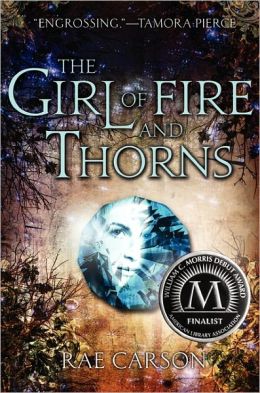No doubt about it, attending conferences is an important aspect of a successful writing career. It's important to jump in early (i.e. you're not ready to submit anything yet), and keep going. That's because networking is king at writing conferences.
But that's next week's blog. Today we're covering the nickles and dimes of conferences.
Essentially, when you're planning which conferences you're attending, you'll need to find out how much the following cost:
- Conference Cost
- Hotel / Lodging
- Transportation
- Food
- Spending/Souvenirs
Conference Costs
The cost of the conference varies depending on the conference. For instance, conferences can run from
$25ish - $3,600ish depending on the conference. This
cost is only for the actual entrance into the conference. However, my experience is that the better ones cost more
money... sometimes. That's not saying you can't find some excellent deals, but $40
for a weekend may only net four good presentations and a couple
networkable moments. Conversely, the $40 conference may be the biggest hit of the year, depending on the organizers.
When you're shelling out hard earned money, this can sometimes feel like a crap-shoot. But no matter which conference you attend, look for ways to make it work for you. For instance, I attended Worldcon one year. I won't say which one, but let's just say I was a little disappointed. What I failed to understand, is that Worldcon is like any local con, but bigger. Fandom was out to party, but so were the publishers. I had to throw myself out of my comfort zone and look for opportunities to learn something. If you're going to this type of conference, have a networking plan ready before you get to the conference. Just remember to accomplish your goals before you go home or you'll be wasting time and money.
Hotel Costs
Sometimes you just don't want to drive anywhere once you get to the conference. Even with local conferences, I have friends who stay at the hotel where the conference is while I'm driving 45 minutes home. The first day, I congratulated myself on my thrift. The second day, I was exceptionally jealous.
If you're going to get a hotel for the conference, check three things:
- Proximity of the hotel to conference
- Parking costs at hotel or conference center
- Complimentary breakfast
First, the closer to the conference the better, but don't forget that some of the room parties may be in nearby hotels. You only need a clean room/bathroom to grab some shuteye before you hose off and jump back into the networking fray. Okay... and maybe squeeze in a little writing time.
Second, if you're driving and have to drive between your hotel and the conference center, where are you going to park your car? Does the conference center have free parking for attendees? Is there a daily fee?
Lastly, one thing to check when you're booking your hotel is a complimentary breakfast. A hotel that offers a complementary breakfast (Note: NOT continental breakfast, but a full meal) will lighten your food budget significantly. Just get there early if you want the blueberry bagels.
Another way to save costs on hotels is to book a room with two twin beds and split the cost with a buddy. If you don't have a friend attending the conference you want to go to, check the conference Facebook page or ask around. Usually you can find someone that is looking for a cheaper alternative.
Transportation Costs
As they say, this is where the rubber meets the road. Sadly, there's not much you can do about the cost of transportation. Shop around for airfare to find better deals. If you're driving, consider carpooling. In addition to saving a bundle on gas, planning out writing games and research for the trip can make the downtime fun.
One thing I've always wanted to do, but have never had the money, is take a train to a writing conference. Spending a couple days typing while the world fly's by. Romantic, no? Hmmm... I need to add that one to my bucket list.
Food Costs
Dining expenses is where you can really watch your pennies. I have four suggestions for winning this game:
- Choose a hotel that offers a complimentary breakfast
- Find the ConSuite for free snacks and drinks
- Scout out the cheapest dining spots
- Ask other attendees what deals they've found
I've already discussed the complimentary breakfast, but what's a ConSuite? Well, I found a good definition on the
Omaha Science Fiction and Fantasy Festival site. "A Con Suite is a Hospitality or party room hosted by the staff of a
convention where the members of that convention can sit down, relax and just enjoy themselves." Essentially, it's a relaxed room with free snacks and drinks!
Availability may vary. Check your con for details.
But don't forget to take a walk and find the nearby cheap places to eat when you get to the conference. While attending one of the Worldcons, I was a little distressed to see that the casino's buffets were running around $15 and up, per meal. Fortunately, my writing group and I were glad to find a great little food place in the casino's arcade. Food prices ran from $4 to $10, depending on what you ordered. We ended up eating lunch there every day.
Spending/Souvenirs
This is the only other aspect of your conference budget that you can skimp on. Most conferences and conventions have Dealers Rooms, where authors and geeks sell their various wares. And if you've been gone from home for several days, the kids may expect you to bring home some booty. From autographed copies of your favorite authors to Victorian corsets, sometimes you can find almost anything. Just be prepared to pay for it.
Before you go, have an idea how much you're willing/wanting to spend on souvenirs from the conference. It'll save you from acting like a drunken sailor with your Visa, and a protracted grovel at your spouse's feet once you get home.
Conference Pricing Samples
Below I've included sample costs to some of the conferences/conventions I've attended. I've also run the numbers on how much it would cost for me to attend a couple that I've dreamed of attending. But as you can see from their prices, I'll only be able to attend these once in a blue moon.
Don't be afraid to ask your writing buddies and people you meet at conferences for recommendations on other conferences. Word of mouth could lead you into a little known conference that you'll enjoy.
Worldcon Sample - 5 days
Conference Cost:
Worldcon - $200
Hotel:
Shared $200
Transportation:
Carpool $50
Food:
Hotel: Breakfast free
Lunch: Casino Arcade - $5 - 10 per meal / 5 days
Dinner: $10 / 5 days
Snacks: ConSuite (free)
Average: $80
Spending/Souvenirs:
$50
Total Cost:
$580
LTUE Sample - 3 days
Conference Cost:
LTUE: $30 - $45
Hotel:
N/A - local
Transportation:
45 min. drive/2X per day/3 days - $50 gas
Food:
$20 per day/3 days - $60
Spending/Souvenirs:
$25 - $50
Total Cost: $165 - $205
LDStorymakers Sample - 2 days + Boot Camp
Conference Cost:
LDStorymakers $185 - $235
Hotel:
N/A - local
Transportation:
45 min. drive/2X per day/3 days - $50 gas
Food:
Lunch & Snacks included - $0
Spending/Souvenirs:
$25 - $50
Total Cost: $260 - $335
Projected Thrillerfest - 4 Days
Conference Cost:
ThrillerFest - $328-$1,220
Hotel:
Grand Hyatt, NYC - 4 nights - $1,296+
Transportation:
Air: $416-$605
Taxi: $100-$200
Food:
$60 per day / $240 - four days
Spending/Souvenirs: $100
Total Cost: $2,480 - $3,661
Projected Clarion-West - 6 Weeks
Conference Cost:
Clarion-West - $3,600
Hotel:
N/A - Included
Transportation:
Air: $284-$549
Food:
Breakfast and most weekday meals included - $40 per week/6 weeks - $240
Spending/Souvenirs: $100
Total Cost: $4,224 - $4,489













